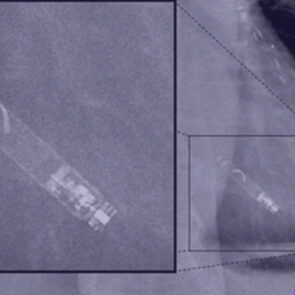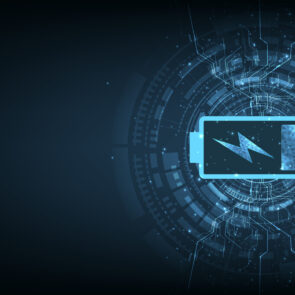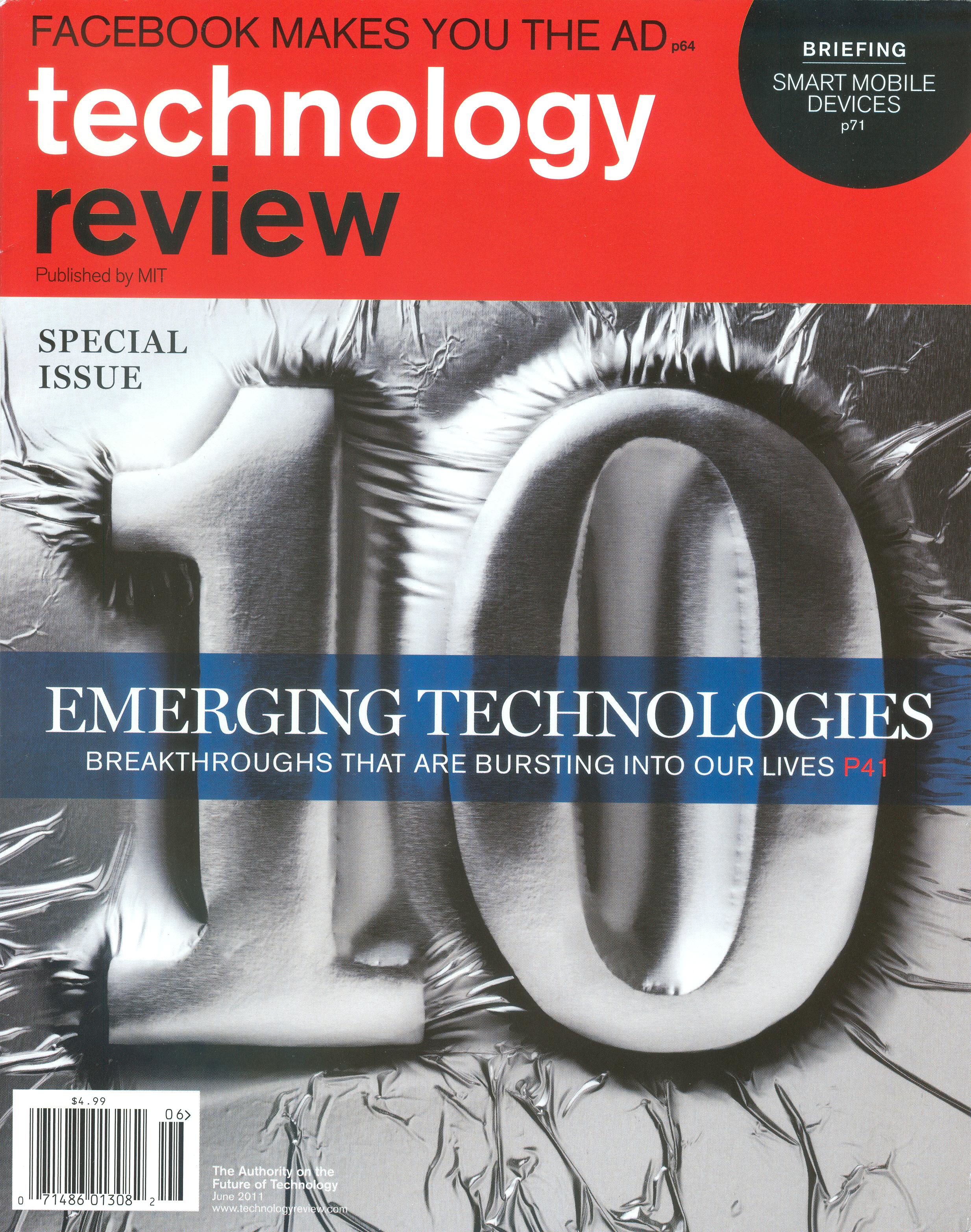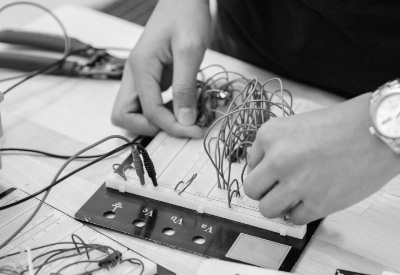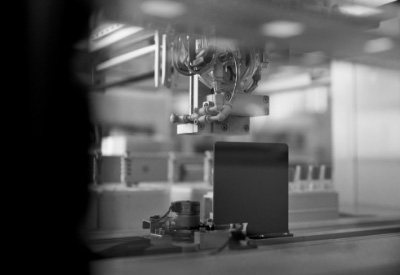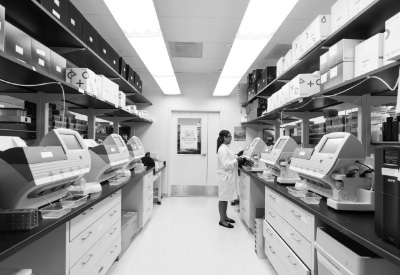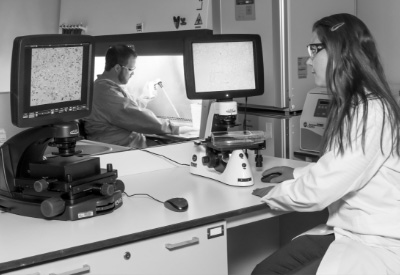February 2025 | Tips & Information
The Role of Betavoltaic Power in the Internet of Things
In today’s interconnected world, the Internet of Things (IoT) is rapidly transforming how people live and work. This revolutionary network of physical devices—ranging from home thermostats to industrial sensors—is designed to communicate, collect, and exchange data, enabling seamless integration between the digital and physical realms.
As IoT continues to expand, the demand for efficient and sustainable power sources becomes increasingly critical. Enter betavoltaic power sources: a cutting-edge solution that promises to address the unique challenges of powering IoT devices. City Labs is at the forefront of this innovation, advancing betavoltaic technology through our patented NanoTritium™ battery.
These small-scale betavoltaic batteries are powered by tritium, harnessing the natural process of beta decay to provide long-lasting power that makes IoT devices smarter, smaller, and more reliable than ever before.
What Is the Internet of Things?
The Internet of Things refers to a network of physical devices embedded with sensors, software, and other technologies that enable them to connect and exchange data over the internet. From smart home systems that automate lighting and security to wearable fitness trackers that monitor health metrics, IoT devices are integral to our modern lives.
In industrial settings, IoT applications include systems for predictive maintenance, environmental monitoring, and supply chain optimization. These devices rely on constant connectivity and low power consumption to function effectively in diverse and often remote environments.
IoT Power Challenges
While IoT devices are designed to be small, efficient, and versatile, their reliance on traditional power sources presents a significant hurdle. Many IoT devices are deployed in hard-to-reach or inhospitable locations, such as deep within industrial machinery or in remote natural environments, where replacing batteries is either impractical or cost-prohibitive. Additionally, the need for prolonged operation without frequent maintenance demands innovative solutions that go beyond conventional lithium-ion batteries.
This is where betavoltaic power sources come into play. Unlike traditional batteries, betavoltaic power sources harvest energy from the natural decay of radioactive isotopes that emit energy in the form of beta particles. These batteries are incredibly durable, capable of providing reliable power for decades without recharging. Their compact size, robustness, and ability to function in extreme conditions make these nuclear batteries ideal for powering IoT devices, especially those in critical or remote applications.
Collaborating With IoT Experts
City Labs has long been a pioneer in developing betavoltaic power solutions, and its partnership with David Blaauw—the Kensall D. Wise Collegiate Professor of Electrical Engineering and Computer Science at the University of Michigan and a leading researcher in low-power computing—has further strengthened its position as an innovator in this field. Together, we are working to integrate betavoltaic technology into ultra-low-power IoT devices.
One of the most significant outcomes of this collaboration has been the development of solutions that extend the operational lifespan of IoT devices while reducing their environmental footprint. By leveraging Blaauw’s expertise in microelectronics and City Labs’ advancements in betavoltaic energy, the partnership is creating IoT systems that can function autonomously for years, even in the most challenging conditions.
In a recent project, City Labs and Blaauw have collaborated on several innovative research projects that seek to explore the potential of betavoltaic power for sensors used in critical applications, such as environmental monitoring and industrial safety. These sensors often require minimal yet consistent energy to transmit data over long periods. The integration of betavoltaic batteries ensures uninterrupted operation, significantly reducing maintenance costs and downtime.
Benefits of Betavoltaic Power Sources for IoT
The application of betavoltaic technology in IoT devices offers several compelling advantages:
- Long-lasting power. Betavoltaic batteries can provide power for 20 years or more, making them ideal for IoT devices in remote or hard-to-access locations.
- Compact design. The small size of betavoltaic batteries enables the miniaturization of IoT devices, opening up new possibilities for wearable tech and space-constrained applications.
- Reliability in extreme conditions. These batteries are highly durable, functioning reliably under harsh conditions, including extreme temperatures, high pressures, and corrosive environments.
- Reduced environmental impact. With a long operational lifespan, betavoltaic batteries minimize waste and reduce the need for frequent replacements.
- Enhanced device autonomy. By eliminating the need for frequent battery replacements, betavoltaic power enhances the autonomy of IoT systems, ensuring continuous operation without human intervention.
Pioneering the Future of IoT
City Labs’ dedication to advancing betavoltaic power is not just about meeting current IoT demands; it’s about anticipating the future. As the IoT ecosystem grows to encompass trillions of devices, the need for sustainable and efficient power solutions will only intensify.
With its unparalleled longevity and reliability, betavoltaic technology is poised to play a pivotal role in powering this future. Whether it’s enabling long-term environmental monitoring in remote wilderness areas or ensuring the reliability of critical industrial sensors, betavoltaic power is driving the IoT revolution forward.
Explore IoT Innovations With City Labs
City Labs invites you to join us in shaping the future of IoT. Whether you’re exploring innovative solutions for remote sensors, wearable devices, or industrial applications, our expertise in betavoltaic technology can help bring your vision to life.
Contact us today to learn more about how we can collaborate to create smarter, more sustainable IoT systems.


